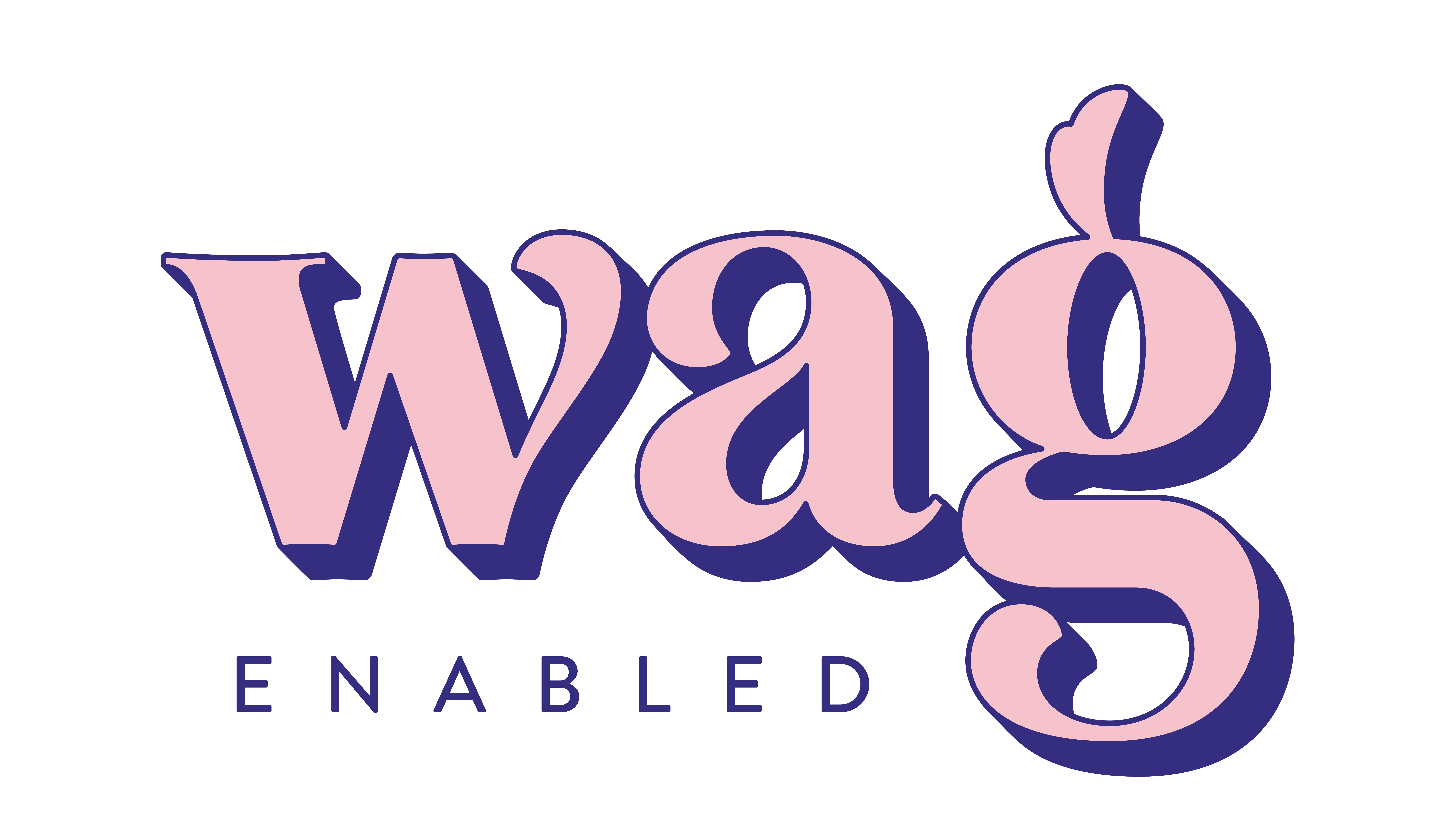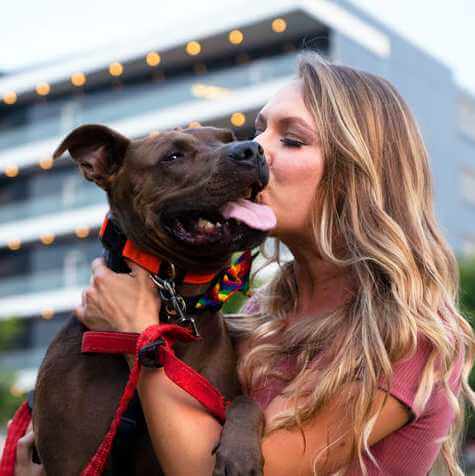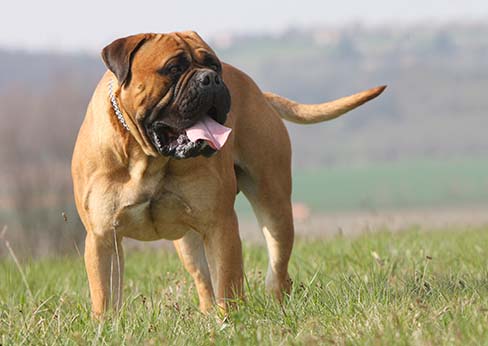Who doesn’t love a big dog? They typically have sweet dispositions and their size makes them the perfect cuddling partner. But does that mean everyone who’s thinking of adopting a dog should go for a larger breed? Absolutely not.
While we adore gentle giants as much as the next person, it’s important to understand that the bigger the dog, the bigger the responsibility. If you’re confident a macho-sized mutt is for you, we’ve outlined some things in this blog that you should keep in mind before bringing them home!
Space
It goes without saying, but a big dog is going to take up a lot more space than a smaller dog. Even if they’re pretty mellow and spend most of the day napping, you’ll still need to find space for their larger crate and food bowls. It’s also not a bad idea to take a look at your car to see if you have enough room to transport them in.
Cost
Big dogs have big tummies, and big tummies need a lot of food. Take a look at your budget and see if you can afford to buy enough dog food each month to keep your big new friend happy. Plus, consider the cost of the larger bed (preferably high quality to help protect those joints), the larger crate, etc. And then your dog will need larger, more durable toys for those strong jaws—which will unfortunately also cost more.
Exercise
While there are plenty of large-breed dogs that are couch potatoes (we’ll get into those later!) many large dog breeds need more exercise than other breeds. Breeds that are considered to be in the “hunting, working or herding groups” in particular will need more exercise. If your new dog is in one of these groups and is in good health, they will need at least 30 minutes of vigorous exercise a day in order to stay healthy.
Where you live
If you rent a home or an apartment, one of the first things you need to do is find out if your landlord even allows dogs! If they do, you also need to ask if there are any restrictions on size. It’s not uncommon for landlords to have weight and/or size restrictions for pets on their property. You also need to have an idea of what your future looks like. If you are someone who moves around a lot, it might not be a good idea to get a big dog since it’s pretty common for apartments to not allow them.
Accessibility
While it can be a little annoying when smaller dogs sit under your chair during dinner and beg for food, imagine what it’s like with a big dog. Don’t be surprised if you’re sitting at the dinner table and turn to see their head gazing longingly at your food from beside the table’s edge. Large dogs can reach a lot more things than smaller dogs, so expect to find the occasional nose print or dog slobber in unexpected places. You also want to make sure cabinets are secure to keep your dog from getting into things he’s not supposed to.
Don’t let the above list scare you off! Bringing a living animal into your home should always take serious consideration, no matter their size. If you are still convinced a big dog is right for you, we’ve outlined a list of the best apartment breeds!
Greyhound
Even though a greyhound may weigh between 60 and 70 pounds, its temperament is what makes it well-suited for apartment living. This breed is typically quiet, well-mannered and eager to please. Greyhounds are surprisingly lazy and happy to spend the day on your couch. Despite being able to run at speeds up to 45 mph, it can be shy and prefers a calm household. Warning: It has a strong chasing instinct.
Mastiff
This calm and good-natured breed can weigh anywhere between 120 and 230 pounds. A gentle giant, the mastiff is instinctively protective of its family. It needs regular exercise like moderate walks and visits to the park, so make sure these big guys adjust to taking the elevator in your apartment building. Warning: It slobbers and can be stubborn.
Great Dane
Great Dane’s are the perfect condo or apartment companion. While they may look big and intimidating, they’re actually super mellow and pretty lazy. Just be aware that a swipe of that tail can clear your entire coffee table! A regular walk will satisfy the activity needs of most Danes, who will then be content to lounge on your sofa and hang with you when you’re home — even if only his head fits in your lap.
Basset Hound
A more medium-sized dog, the basset hound typically weighs between 20 and 65 pounds. Its temperament is easygoing and good-natured, and the breed is recognizable by its long, floppy ears. The dogs spend most of the day sleeping and are great with kids. This cuddly breed is a natural pack animal but be forewarned that it can be vocal, so make sure you have very understanding neighbors!
If this article has shown you that maybe a large dog isn’t right for you, don’t worry! Our friends at ForRent.com put together a fantastic list of the best small dog breeds for apartments.
Shih Tzu
Shih Tzus are small, weighing just 9 to 16 pounds! They’re fun dogs, their personality is playful, sassy, and affectionate. A Shih Tzu is a lap dog that prefers to be pampered. Because of its low energy, it doesn’t need many trips outside, but it does need companionship. Chinese royals had them as house pets, and the little Buddha dogs were companions for thousands of years. Warning: Its long hair requires grooming.
Cavalier King Charles Spaniel
Another dog breed of small-statured canines, this dog weighs just 10 to 18 pounds. Its temperament is friendly and eager to please, and it gets along well with children and other dogs. The breed dates back to British royalty and King Charles II’s preference for little dogs. These spaniels respond well to training but be forewarned that their long-hair coat requires good nutrition and care.
Pug
Its weight is 14 to 18 pounds, and its temperament is comical and playful. But compared to other small dogs, pugs are a relatively quiet breed, which is an important consideration when living in pet-friendly apartments. Pugs can be stubborn at times, but their general friendliness makes them good city dogs.
Dogs are wonderful companions, so don’t think this article is trying to convince you not to own one if your heart is set on it. Instead, it’s about thinking everything through before deciding to take care of a very big living creature. And if everything sounds good, then you will have no problem with your new furry friend!





